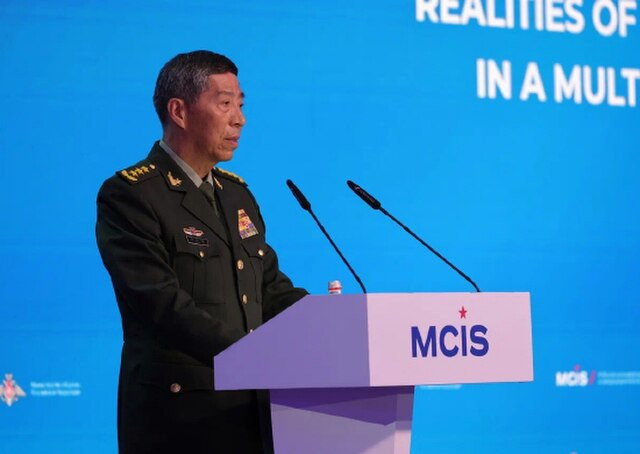In a series of recent events that have raised eyebrows on the international stage, China's Defense Minister, General Li Shangfu, has been conspicuously absent from the public eye. This sudden disappearance has fueled speculation about a potential corruption purge within China's military ranks.
General Li, who had not been seen in public for approximately two weeks, reportedly missed several key meetings. Rahm Emanuel, the US envoy to Japan, took to social media to highlight the general's absence, suggesting that the "unemployment rate" within the Chinese government had surged. Citing sources from both the US and China, The Wall Street Journal reported that General Li is likely being removed from his position.
This isn't the first such incident involving high-ranking Chinese officials. Earlier this year, Foreign Minister Qin Gang also vanished from public view, an event that remains largely unexplained. When questioned about General Li's whereabouts, a Chinese Foreign Ministry spokeswoman stated she was "not aware of the situation."
General Li's last known public appearance was on August 29th in Beijing, where he addressed a security forum with African nations. His career, marked by a steady rise through the military and political ranks, has been closely watched by international observers. Like Mr. Qin, General Li is believed to be a favorite of President Xi Jinping. Both their disappearances have sparked discussions about the transparency of Chinese political leadership and the stability of Xi's decisions.
Further fueling the speculation, two generals from China's rocket forces, responsible for controlling land-based missiles, were replaced earlier this year. Additionally, the president of the army's military court was removed shortly after his appointment.
Ambassador Emanuel's tweets, which drew parallels to literary works like Agatha Christie's "And Then There Were None" and Shakespeare's "Hamlet," highlighted the general's missed meetings and suggested the possibility of house arrest. A Reuters report indicated that Vietnamese officials were informed of General Li's "health condition" as the reason for his sudden withdrawal from a scheduled meeting.
The series of high-profile disappearances, coupled with the unexplained replacement of officials like Foreign Minister Qin Gang, has led to questions about President Xi's leadership and decision-making. Neil Thomas, an expert on Chinese elite politics with the Asia Society Policy Institute, noted that while Xi's leadership seems stable, the affected officials are not part of his inner circle.
Bill Bishop, an analyst, pointed out that the Chinese military has a long history of corruption. Despite Xi's efforts to address this issue, the recent events suggest that corruption remains a significant challenge. The fact that officials like General Li and Mr. Qin, both promoted by Xi, are now under scrutiny raises questions about the effectiveness of Xi's anti-corruption measures.
The unfolding situation comes at a time of increased military activity near Taiwan and tensions in the South China Sea. The absence of key military and foreign ministry figures during such a critical period raises concerns about communication and crisis management.
Ambassador Emanuel's comments, though unusual for a diplomat of his stature, may be an attempt to elicit a response from China regarding the ongoing situation. As the world watches closely, the mystery surrounding the disappearances and the potential implications for China's political landscape remain at the forefront of international discourse.






